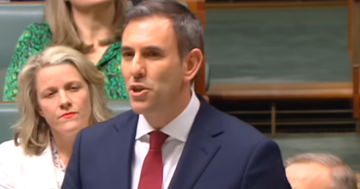Financy* says female wages growth is lagging rising inflation and childcare costs.
 The cost of childcare has gone up, but wages growth for women remains subdued and this is a big problem for economic equality that needs attention.
The cost of childcare has gone up, but wages growth for women remains subdued and this is a big problem for economic equality that needs attention.
As it stands most childcare workers are women, and most Mother’s and many families, will evaluate the woman’s wage to determine whether it is worth it for her to return to work.
The dilemma is that as childcare costs rise, and they certainty are according to the latest inflation figures, that this will act as a disincentive for women participating in paid work.
As Alan Kohler noted today in his column for the New daily, “everybody’s worried about inflation at the moment, but actually we need more inflation for women.
“…weak wage growth has been the most pressing economic problem for years, and arguably the most pressing social problem is the financial disadvantage of women.”
In every sector of the economy women earn less than men.
The average female wage slipped back to where it was in 2017 with women earning $261.50 less a week than men on average, according to the Financy Women’s Index.
Many industries are known for chronically underpaying women such as childcare, aged care, nursing, interior design, book editing.
On top of this society still undervalues unpaid work, of which women continue to do the lion’s share.
The monetary value of unpaid care work in Australia has been estimated to be $650.1 billion, the equivalent to 50.6 per cent of GDP according to the Workplace Gender Equality Agency (WGEA).
I firmly believe that a social shift is needed and the government must take the lead on supporting female wages growth and provide some support, perhaps through the tax or superannuation systems, that recognises and rewards the unpaid childcare work borne by largely Australian women.
Georgie Dent, Executive Director of The Parenthood says the latest inflation figures showed government policies to make early learning and childcare more affordable have fallen short.
“Out of pocket child care costs have risen by 6.5 per cent over the past year locking families in a vice of ever-increasing fees that strain household budgets and act as a brake on workforce participation by parents.
“Given Australian parents already pay some of the highest fees in the world, this jump is catastrophic.
It is vital for children, families and the economy that the Federal government recognises the unaffordability of early learning and care and addresses.
“The CPI figures don’t include the fee hikes that some services have implemented at the start of the early learning year.
“The burden of early learning and care fees force too many working families into terrible choices, including discouraging women from going back to work and stopping young children from early learning programs that are crucial for their early development.
“We know the children most likely to be locked out of early learning by cost restraints are also those that would most likely benefit most from its benefits, compounding inequity.
“Early learning and care will be a key issue for parents at the upcoming Federal election, with parents wanting commitment from all parties to it becoming more affordable and accessible.
“Australia must urgently invest in universal access to high quality, affordable and accessible early learning and care,” Ms Dent said.
*Financy creates and publishes a variety of content on women’s money matters.
This article first appeared at financy.com.au.










